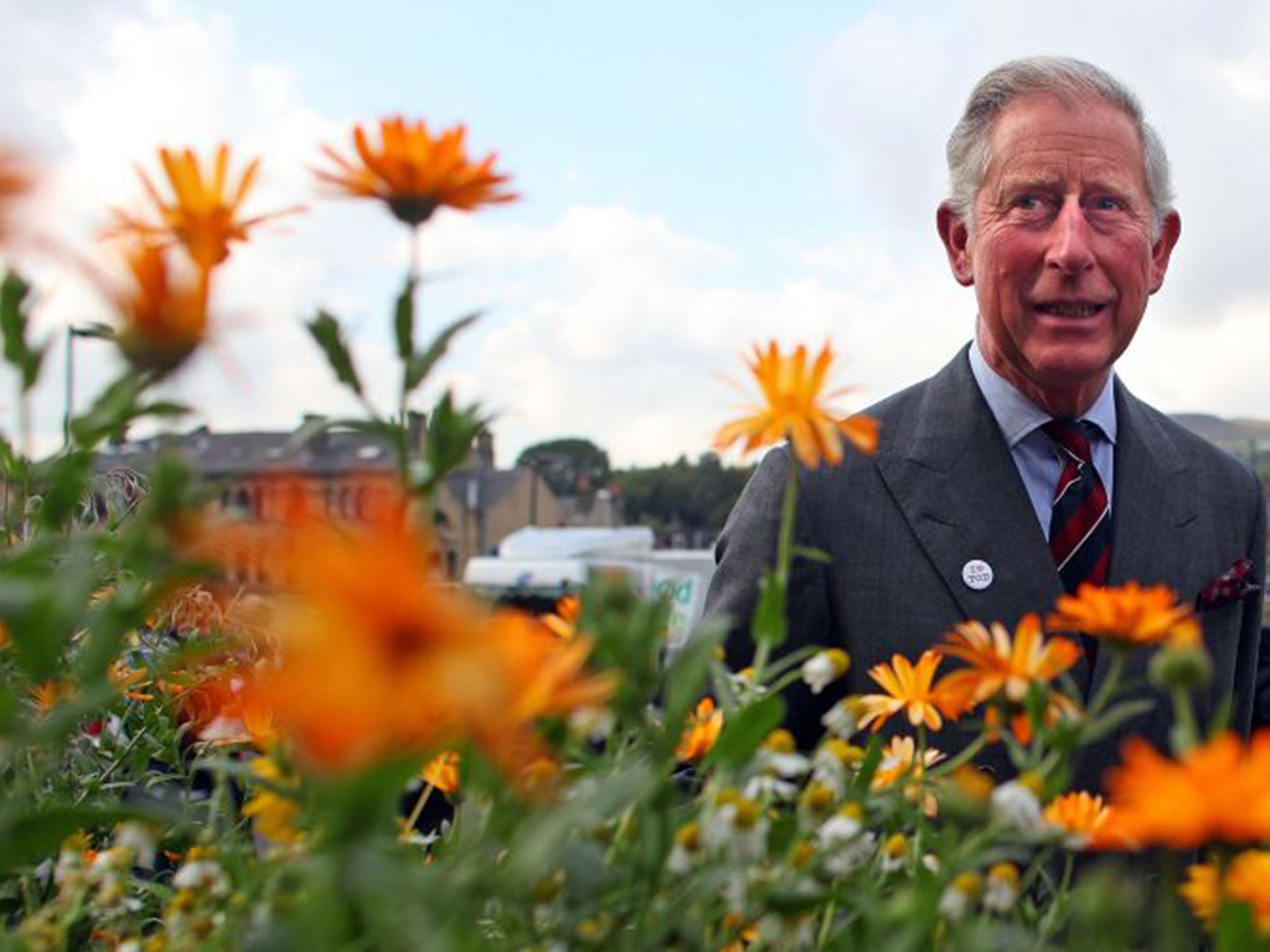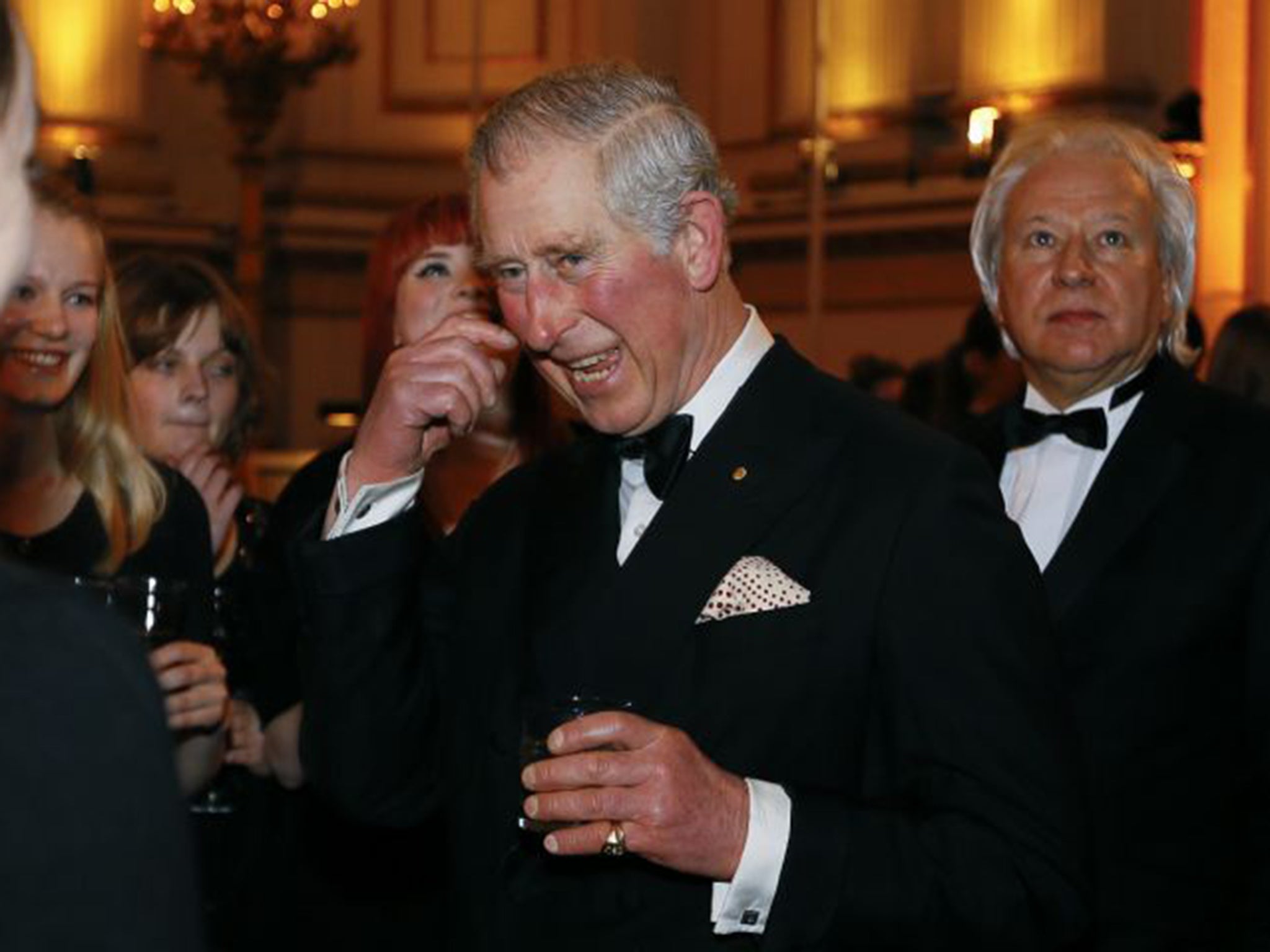Prince Charles the saviour of the nation? A new book highlights concerns about how political he will be when he eventually becomes king
The Prince of Wales has stepped up the number of meetings with ministers and civil servants recently, partly in recognition of the Queen's advancing age

Your support helps us to tell the story
From reproductive rights to climate change to Big Tech, The Independent is on the ground when the story is developing. Whether it's investigating the financials of Elon Musk's pro-Trump PAC or producing our latest documentary, 'The A Word', which shines a light on the American women fighting for reproductive rights, we know how important it is to parse out the facts from the messaging.
At such a critical moment in US history, we need reporters on the ground. Your donation allows us to keep sending journalists to speak to both sides of the story.
The Independent is trusted by Americans across the entire political spectrum. And unlike many other quality news outlets, we choose not to lock Americans out of our reporting and analysis with paywalls. We believe quality journalism should be available to everyone, paid for by those who can afford it.
Your support makes all the difference.The Prince of Wales’s preparations for an activist monarchy prompted a backlash last night, as a new book revealed a dysfunctional and rivalrous court around him, compared by one former courtier to Wolf Hall.
Someone who has worked closely with him told The Independent on Sunday: “He is dying to having his go with the train set. He does cause concern with his outbursts. He’ll struggle to restrain himself.”
The Prince has stepped up the number of meetings with ministers and civil servants recently, partly in recognition of the Queen’s advancing age. The Supreme Court is expected to rule this month on whether his “black spider” letters to ministers should be published. But some observers are concerned he is pushing for a more active role in national life even before he succeeds to the throne.
Someone with close links to the Palace said yesterday: “It is no accident that he writes all those letters to ministers. He does see himself as a kind of saviour of the nation, someone who can mend the broken country. Some might see that as presumptuously messianic.”
Another said: “He tends to dash off his letters without a great deal of consideration. He is far too energetic for his own good.”
Constitutional experts are concerned that he could provoke a political crisis, especially if he were to become involved in discussions in a hung parliament after an election. Civil servants have had discussions about the transition to a new monarch, and are believed to have touched on the sensitive question of what should happen if the Queen’s health fails.
There is some relief that the Fixed-Term Parliament Act has removed virtually all the remaining elements of royal prerogative in the event of a hung parliament, but also some anxiety that the Prince is less likely than his mother to be a largely passive onlooker.
“There is a bit of a cycle whereby politicians at first are interested and amused by Charles, but then they realise that he just does keep going on about things,” said a Palace insider. “My feeling is that this lot are at that stage with him. I am sure the civil servants are war-gaming all the options. They will do whatever they can to avoid putting the Queen in a difficult position.”
A senior official said yesterday: “He does seem more difficult to deal with the older he gets. The age of smooth relations between the Palace and politicians, when they were all of roughly the same milieu, is not as it was. They are facing a difficult period as William Nye, PPS to the Duke and Duchess of Cornwall, who had a link with Westminster, having been at the Cabinet Office, is leaving Clarence House in March and Christopher Geidt, private secretary to the Queen, is going to be off for six months. Relations between Clarence House and Buckingham Palace are also as bad as ever, and Charles is not getting any easier. It’s chaos.”
The Prince has let it be known that he hopes other religions will be included when he accedes the throne, and this weekend stories have emerged suggesting he wants to modernise the honours system. Jonathan Dimbleby, the Prince’s biographer, commented a year ago: “A quiet constitutional revolution is afoot… I predict he will go well beyond what any previous constitutional monarch has ever essayed.”
He is also understood to support the case for proportional representation in Westminster elections and he opposes the Human Rights Act. Whether he would keep his counsel on such issues is debatable at best, given the fervour with which he has lobbied ministers in the past on issues of concern to him.

Concerns about the Prince’s self-image as a political actor have led some to speculate that politicians might even welcome a decision by the Supreme Court whereby his previous letters be made public. The resulting furore, it is claimed, might have the effect of showing the importance of a degree of royal reticence in the face of elected politicians. With the letters unpublished, so the argument goes, he would feel all the less inhibited.
Paul Flynn, the Labour MP, said yesterday: “If he becomes the meddling monarch – and it’s almost certain that he will – he will precipitate a constitutional crisis.”
Mr Flynn urged a referendum on whether the royal succession should skip a generation. “We’re into referendums: we might as well have a referendum on that and have some choice in the matter, rather than continue to have the head of the state on the principle of first past the bedpost.”
Kevin Maguire, associate editor of the Daily Mirror said: “Spoilt, petty, self-pitying, meddling and a plonker – Prince Charles is a gift … for republicans.”
And Graham Smith, spokesperson for Republic, the campaign against the monarchy, said that the new book by Catherine Mayer, Charles: The Heart of a King, “is evidence that Charles wants to become an active king”. He added: “The monarchy presides because people think that it is harmless, but Charles will create a clash with public opinion. Our message to Charles is: bring it on. We welcome an active king, as the more he interferes, the more chance there is of bringing down the monarchy.”
Additional reporting by Alexander Ward and Alexandra Sims
Join our commenting forum
Join thought-provoking conversations, follow other Independent readers and see their replies
Comments